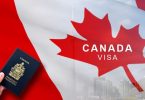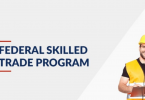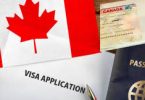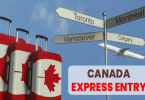Here are the Ultimate Guide to Finding a Job in Canada Before Arrival. We advice you follow this article step by step.
Landing a job in Canada before arriving can be a daunting task, but it’s far from impossible. Many newcomers successfully secure employment—sometimes even high-paying, remote roles—while competing against local candidates.
However, the process requires a well-structured approach, persistence, and the right resources.
Apply Also: Complete List: 12 countries with higher visa approval rates for Nigerians
This guide is designed for Canada-bound workers who already have (or will soon receive) authorization to live and work in Canada, such as:
- A Confirmation of Permanent Residence (COPR)
- A Letter of Introduction for an open work permit (e.g., IEC, Spousal Work Permit, etc.)
If you’re still in the early stages of immigration (e.g., awaiting Express Entry ITA or PNP nomination), this guide will still help you prepare effectively.
Why Secure a Job Before Arriving in Canada?
Waiting until you land in Canada to start job hunting might seem easier, but there are major advantages to securing employment beforehand:
- Financial Stability on Arrival – Having a job lined up means immediate income, reducing financial stress.
- Faster Career Integration – Starting work early helps build Canadian experience, professional networks, and industry credibility.
- Easier Settling Process – Employers may assist with relocation, housing, or banking setup.
- Stronger Immigration Prospects – Some Provincial Nominee Programs (PNPs) prioritize candidates with job offers.
But to succeed, you need a clear, proactive strategy.
Step 1: Master the Basics of the Canadian Job Search
Before diving into pre-arrival tactics, ensure your job search foundation is strong.
1. A Canadian-Style Resume
- Achievement-focused (not just duties)
- Concise (1-2 pages max)
- ATS-friendly format (many companies use Applicant Tracking Systems)
- Tailored for each job (no generic resumes)
- No personal details (age, photo, marital status—unlike some international norms)
📌 Pro Tip: Use tools like Canva, Resume.com, or TopResume for formatting.
2. A Strong Cover Letter
- Customized for each application
- Explains why you’re a fit (skills + company needs)
- Brief (3-4 paragraphs max)
- Professional but engaging tone
3. Optimize Your LinkedIn Profile
- Professional photo & headline (e.g., “Marketing Professional | Canada PR Holder | Seeking Opportunities in Toronto”)
- Detailed work experience (with metrics)
- Skills & endorsements
- Engagement (follow companies, comment on posts)
📌 Pro Tip: Set your location to your target Canadian city to appear in local searches.
4. Networking (Yes, Even Before Landing)
- Join LinkedIn groups (e.g., “Newcomers to Canada Jobs”)
- Attend virtual career fairs (e.g., CanadaVisa, local chamber of commerce events)
- Cold outreach (politely message hiring managers)
5. Tap Into the Hidden Job Market
- 70% of jobs are never posted (filled via referrals/networking)
- Use LinkedIn to find hiring managers
- Reach out to staffing agencies (Randstad, Robert Half, Adecco)
Step 2: Overcome Key Barriers as a Pre-Arrival Candidate
Employers may hesitate for two main reasons:
1. Lack of Canadian Experience
- Solution: Highlight transferable skills (e.g., global experience, adaptability).
- Gain local credibility through:
- Freelancing for Canadian clients (Upwork, Fiverr)
- Volunteering remotely (CharityVillage, VolunteerMatch)
- Canadian certifications (Coursera, LinkedIn Learning)
2. Emigration Risk (Will You Stay Long-Term?)
- Employers fear turnover (costly to rehire)
- How to reassure them:
- Mention your PR status (if applicable)
- Show commitment (e.g., “I’ve researched neighborhoods in Vancouver and plan to settle long-term.”)
- For work permit holders: Explain your PR pathway (e.g., “I qualify for Express Entry and will apply within 6 months.”)
📌 Example Script for Interviews:
“I’ve done extensive research on [City] and am fully committed to building my life in Canada long-term. My spouse and I have already begun networking in the [Industry] field, and we’re excited to contribute to the Canadian economy.”
Step 3: Leverage Free Pre-Arrival Services
IRCC funds organizations that help newcomers for free. Most people don’t use them—don’t make that mistake!
Top Pre-Arrival Programs:
| Program | Services Offered | Website |
|---|---|---|
| ACCES Employment | Resume help, mentoring, job fairs | accesemployment.ca |
| NextStopCanada | Settlement planning, job search | nextstopcanada.ca |
| COA (Canadian Orientation Abroad) | Pre-departure sessions | iom.int/coa |
| Mentoring Partnerships | 1-on-1 career mentorship | mentoringpartnership.ca |
📌 Bonus: Some programs offer mock interviews, credential recognition help, and networking events.
Apply Also: Luxembourg Work VISA 2025 Application Procedure With New Requirements
Step 4: Job Search Strategies for Pre-Arrival Candidates
1. Target Companies That Hire Internationally
Some employers are more open to pre-arrival candidates:
- Multinationals (Amazon, Deloitte, RBC)
- Startups (often more flexible)
- Remote-first companies (Shopify, TELUS International)
2. Use Job Boards for Newcomers
- CanadaVisa Jobs (jobs.canadavisa.com)
- WorkInTech (for IT professionals)
- Indeed Canada (set location to “Remote” or “Canada”)
3. Work with Recruiters
- Specialized agencies (e.g., Hays, Michael Page)
- Industry-specific recruiters (LinkedIn search: “[Industry] Recruiter Canada”)
4. Consider Contract or Remote Roles First
- Easier to secure than full-time roles
- Builds Canadian experience
Step 5: Financial Preparation
Moving to Canada is expensive. Plan ahead:
- Open a Canadian bank account remotely (Scotiabank, RBC, CIBC offer newcomer packages).
- Get a Canadian credit card (helps build credit history).
- Budget for initial costs (rent, transportation, groceries).
📌 Pro Tip: Bring at least 3-6 months of living expenses (CAD 10,000−10,000−20,000).
Final Checklist Before Applying
✅ Canadian-style resume & cover letter
✅ LinkedIn optimized + set to Canadian location
✅ Pre-arrival services enrolled (e.g., ACCES Employment)
✅ Target list of companies + recruiters
✅ Financial backup plan
Apply Also: Nursing Jobs in Luxembourg with Visa Sponsorship
Conclusion: Persistence Pays Off
Finding a job in Canada before arrival is challenging but achievable. By:
✔ Mastering Canadian job search norms
✔ Leveraging free pre-arrival services
✔ Networking proactively
✔ Addressing employer concerns head-on
…you’ll dramatically increase your chances of landing a job before (or soon after) landing in Canada.






